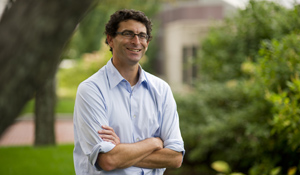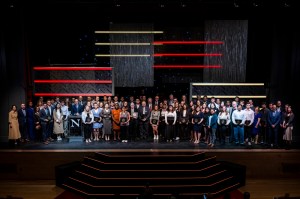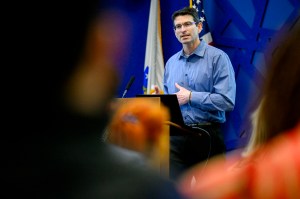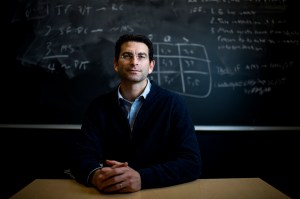
Ronald
Sandler
Professor of Philosophy; Chair of the Department of Philosophy and Religion; and Director of the Ethics Institute
Ronald Sandler in the Press
AFP
US company says it has brought dire wolves back from extinction
Ronald Sandler, a professor of philosophy and ethics at Northeastern University, said he worries this technique might lead to “moral distraction” away from the causes of animals going extinct, like climate change and habitat loss.

Is de-extinction only a pipette dream? This startup has a big, expensive plan to find out.
“Having mammoths isn’t going to solve any of those problems,” says Ronald Sandler, director of the Ethics Institute at Northeastern University.

The Trouble With Algorithmic Ethics
Ronald Sandler, an environmental philosopher at Northeastern University, describes such calculations as “epistemic arrogance.”
BBC Science Focus
There are two northern white rhinos left, both females. Here’s how science hopes to save them from extinction
“It’s an interesting argument,” says ethicist Prof Ronald Sandler from Northeastern University, Boston.
Wired Magazine
Why Bother Bringing Back the Dodo?
The flow of resources into this sector may change the sorts of conservation practices people engage in, says Ronald Sandler, professor of philosophy and director of the Ethics Institute at Northeastern University in Boston.

This company is using gene editing to bring the Tasmanian tiger back from extinction
Commenting generally, and not on the specific thylacine case, Ronald Sandler, a professor of philosophy and director of the Ethics Institute at Northeastern University who focuses on environmental ethics, says he’s not against de-extinction, but emphasizes the importance of considering the most effective ways of tackling conservation challenges.

Trojan trout: could turning an invasive fish into a ‘super-male’ save a native species?
Chemically altering an organism in pursuit of a conservation goal “is not a radical departure from the kinds of things that conservationists are generally trying to do”, says Ron Sandler, a professor of philosophy at Northeastern University who specialises in bioethics. And it’s much less radical than “assisted evolution”, where novel genes are inserted to […]

‘The Algorithm Made Me Do It’: Artificial Intelligence Ethics Is Still On Shaky Ground
The report’s authors, Ronald Sandler and John Basl, both with Northeastern University’s philosophy department, and Steven Tiell of Accenture, state that a well-organized data ethics capacity can help organizations manage risks and liabilities associated with such data misuse and negligence.

How to Build an AI Ethics Committee
The road map, set to be released Friday by consulting firm Accenture PLC and the Ethics Institute at Northeastern University, says ethics committees are well-suited for convening experts and developing standards used in making decisions on complex ethical questions. The report offers guidance on how to assemble one, including the key questions that need to […]

Why bringing back extinct species may not help conservation efforts
Ultimately, says Ronald Sandler, director of the Ethics Institute at Northeastern University, analyzing the pros and cons of de-extinction varies from species to species. When framing a cost-benefit analysis in terms of conservation, he tells the Monitor in a phone interview, “it’s almost never going to be the case that the benefits favor engaging in […]












